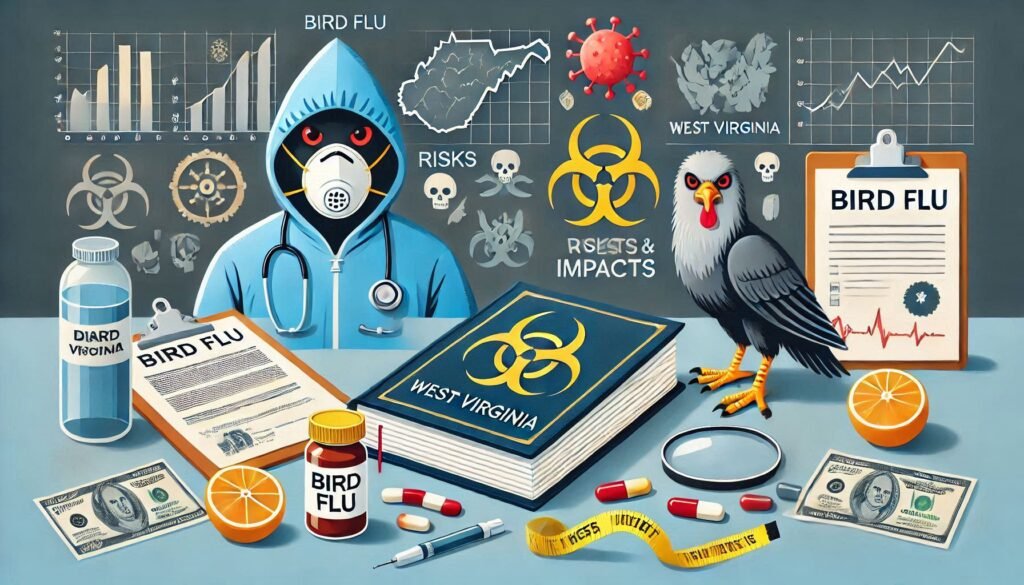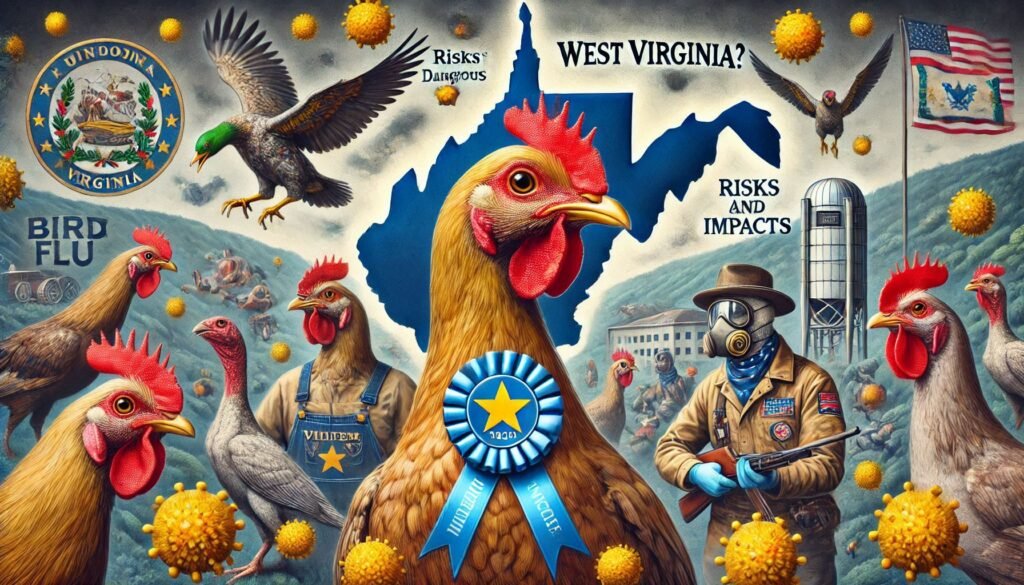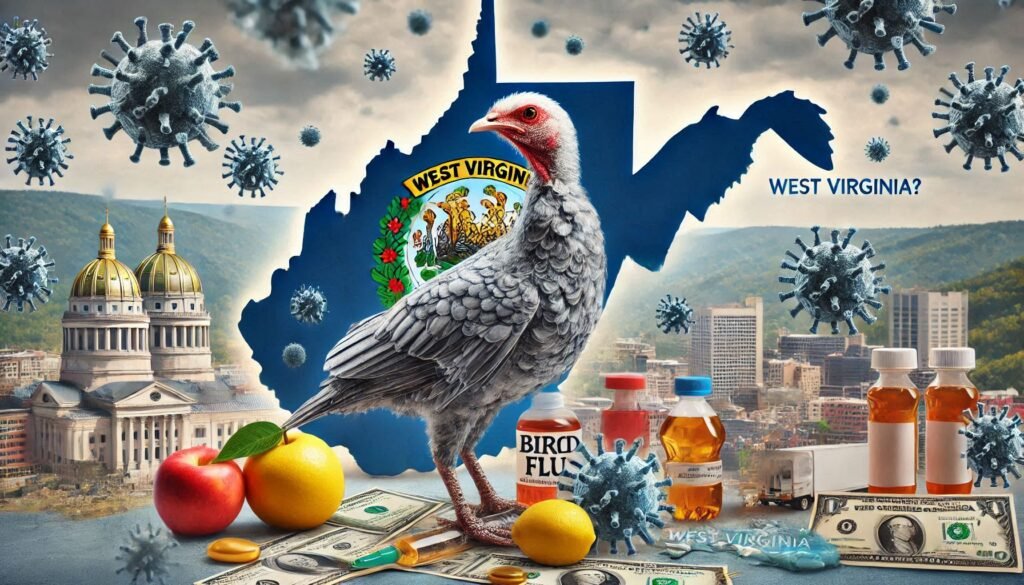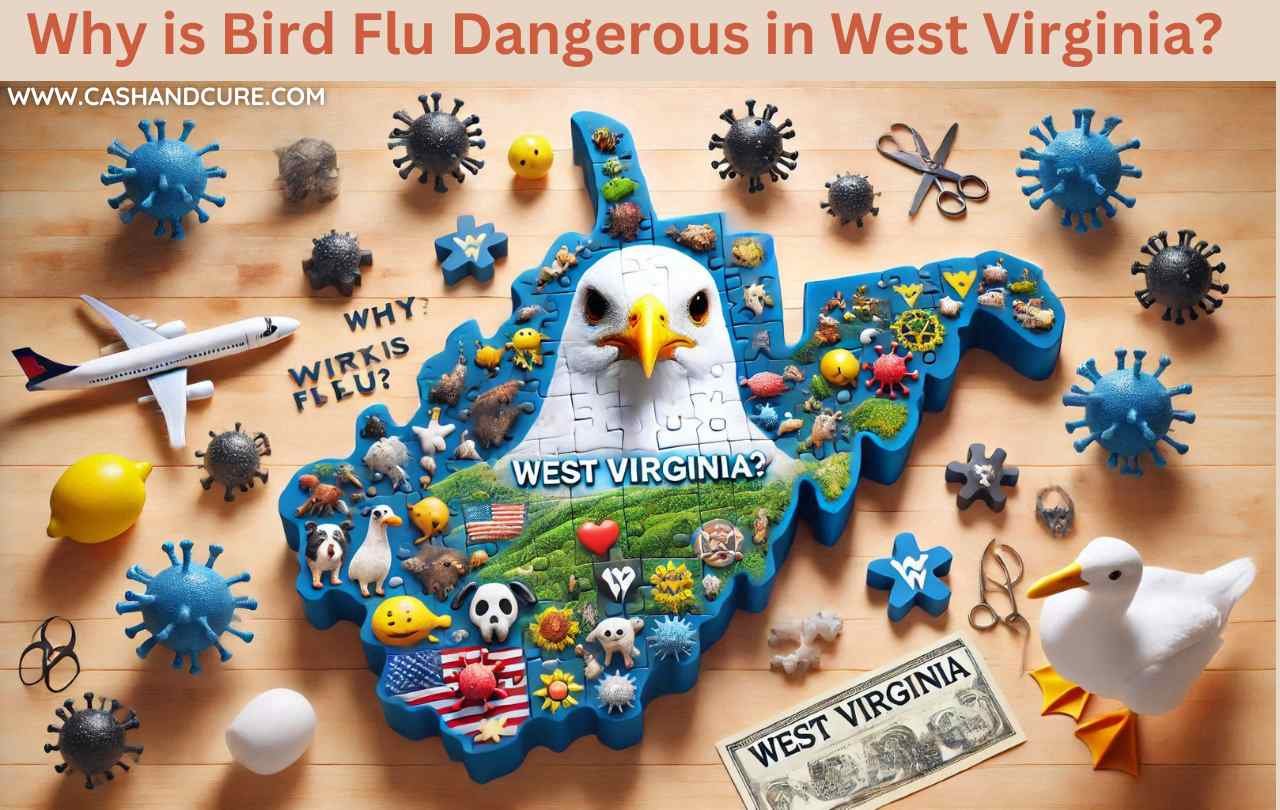Why is bird flu dangerous in West Virginia? Risks and impacts, Bird flu, also known as avian influenza, poses significant risks to both public health and the poultry industry, especially in areas like West Virginia. Let’s find out why bird flu is dangerous in West Virginia, its potential impacts, factual data, and preventive measures. We will also answer all the questions about the virus.

What is bird flu?
Bird flu refers to an infection caused by the avian influenza virus, which primarily affects wild birds and domestic chickens. The most worrisome strains, such as H5N1 and H5N8, occasionally spread to humans, causing severe respiratory illness and even death.
Why is bird flu dangerous in West Virginia?
1. Vulnerability of the poultry industry
West Virginia’s economy is heavily dependent on agriculture, making poultry farming a vital sector. Bird flu outbreaks devastate poultry farms:
- Forcing mass culling of infected birds
- Disrupting supply chains
- Causing financial losses to farmers
Key Data:
- Poultry production contributes $1.2 billion annually to West Virginia’s economy.
- A single outbreak could affect tens of thousands of birds in one farm alone.
2. Transmission to Humans
Although rare, avian influenza can infect humans through close contact with infected birds. The risk increases in regions with high poultry density, making West Virginia particularly susceptible.
Health Risks:
- Severe respiratory symptoms, including pneumonia
- High mortality rates in severe cases (H5N1 has a fatality rate of approximately 60% among reported human cases).
3. Impact on Ecosystems
Wild birds often serve as carriers of avian influenza, spreading the virus along migratory routes. West Virginia’s diverse bird population and proximity to migratory paths increase the likelihood of outbreaks.
Environmental Concern:
Controlling the spread among wild birds is challenging, and the virus can jump to domestic poultry through shared water sources and feeding grounds.

How is Bird Flu Spread?
The virus spreads through direct contact with infected birds, their droppings, or contaminated surfaces. Key risk factors include:
- Handling infected poultry
- Exposure to contaminated water or feed
- Contact with wild birds carrying the virus
Preventive Measures in West Virginia
1. Biosecurity Practices on Farms
- Limiting access to poultry farms
- Disinfecting equipment and vehicles
- Ensuring clean feed and water sources
2. Monitoring Wild Birds
Wildlife officials in West Virginia actively monitor bird populations to detect early signs of avian influenza. Programs are in place to track migratory birds and test for the virus.
3. Public Awareness Campaigns
Educating farmers and residents about the dangers of bird flu is critical. Initiatives include:
- Workshops for poultry farmers
- Guidance on reporting sick or dead birds

Government Response to Bird Flu Outbreaks
The West Virginia Department of Agriculture (WVDA) plays a pivotal role in managing bird flu outbreaks by:
- Implementing quarantine zones
- Conducting mass culling of infected poultry
- Collaborating with the USDA for compensation to affected farmers
Case Study:
In a 2022 outbreak, proactive measures by the WVDA prevented the virus from spreading to neighboring states, showcasing the effectiveness of rapid response.
Economic Impact of Bird Flu in West Virginia
A major outbreak could disrupt the state’s poultry exports, affecting:
- Farmers: Loss of income from culled birds
- Local Businesses: Decline in poultry-related trade
- Consumers: Increased poultry prices due to supply shortages
Example:
During the 2015 U.S. avian influenza outbreak, losses to the poultry industry nationwide exceeded $3.3 billion. West Virginia’s reliance on poultry farming makes it particularly vulnerable to similar economic shocks.

FAQs About Bird Flu in West Virginia
Yes, though rare, humans can contract bird flu through close contact with infected birds or contaminated environments. The risk can be mitigated by following proper safety protocols.
Avoid touching the bird and report it to the West Virginia Department of Natural Resources for proper testing and disposal.
Farmers should implement strict biosecurity measures, such as controlling access to poultry farms, disinfecting equipment, and keeping poultry away from wild birds.
While West Virginia has not faced large-scale outbreaks recently, its proximity to migratory bird routes keeps the state at risk, emphasizing the need for vigilance.
Yes, properly cooked poultry is safe to eat. The virus does not survive high cooking temperatures (above 165°F).


Leave a Reply
You must be logged in to post a comment.